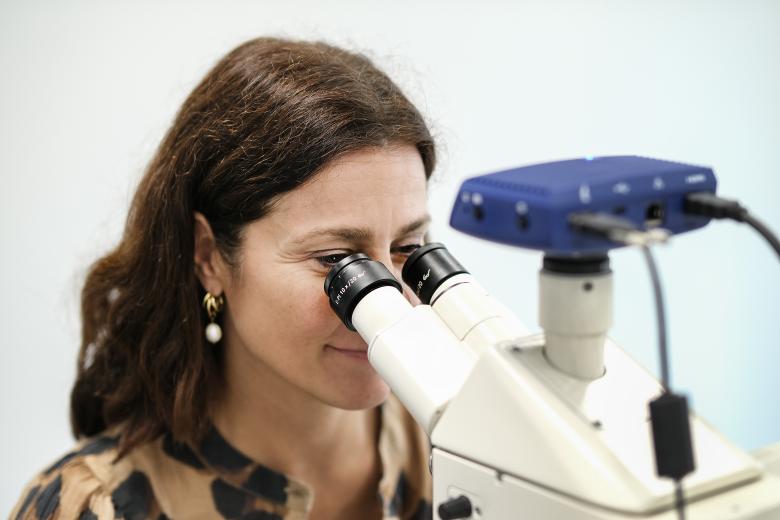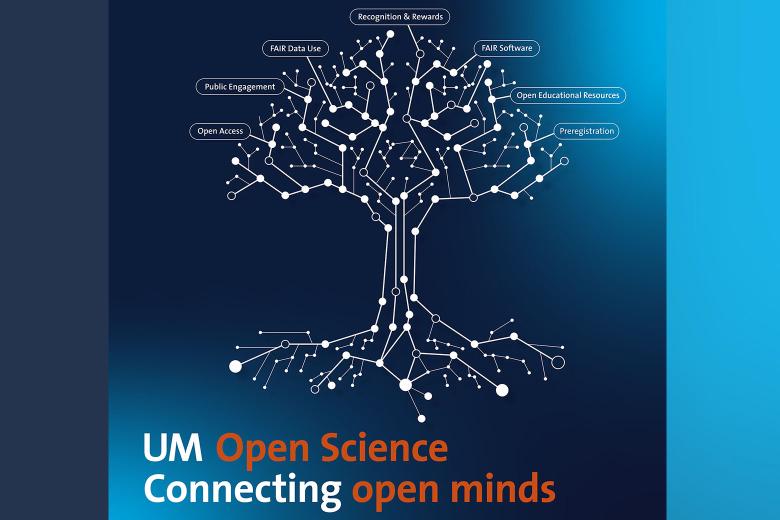A different approach to scientific research
Daisy Jonkers, scientific director of the NUTRIM research institute and professor of Intestinal Health, is calling for more inclusivity and diversity in scientific research. Why is this important, and how can we make research more diverse? “It’s no longer just about the number of publications or grants awarded.”
Wanted: Participants for a health experiment. But preferably men, who meet strict selection criteria. Homogeneous, male research groups have conventionally been the standard in medical research. There are several reasons for this, Daisy Jonkers explains. “The more diverse the research population, the more additional variables that may influence the results. And the greater the diversity, the more people that are needed for comparative purposes. By using male participants, scientists didn’t have to take into account variables like the female hormone cycle.”
In principle, there is nothing wrong with homogeneous research groups, says Jonkers, provided they are well-suited to the research question. “But I do think the scientific community has to become more aware of the differences between people and the translation of the results to everyday practice. We have to realise that the findings for one group don’t automatically apply to another group.” How can we close this knowledge gap?
New mindset
The solution, she suggests, lies in a new, critical mindset among scientists. “That mindset involves questions such as: is my research question adequately geared towards the underlying societal problem? Can we take the next step and ensure that the data and insights we gain are also more broadly applicable to other groups? And is further research required, for example with a heterogeneous population or in a different group?”
“Depending on their research question, scientists could take better account of differences in gender, age, culture, psychosocial factors or economic status. And in the case of biomedical research, they could consider variables such as genetic sensitivity, but also metabolism and muscle strength. Exercise studies are often carried out in carefully selected young men and athletes, but do the findings also apply to older people, or people who are less fit?”
One size doesn’t fit all
What drives Jonkers in her role as scientific director of the NUTRIM research institute and professor of Intestinal Health? “I was interested in nutrition and health from a young age. These are themes that have formed the common thread in my career. The diseases and symptoms prevalent in my field—stomach, liver and intestinal diseases—are often taboo. People don’t like to talk about their bowel movements or flatulence. I hope my work can make a difference in patients’ everyday lives and help to reduce their symptoms. To this end, nutrition often plays a key role.”
In her research, she often encounters important differences between people. “I see an enormous diversity in personal factors that contribute to the development of the disease. Take the microbiota present in the intestine, sensitivity to certain food products, dietary preferences. One patient is fine with yogurt with muesli; in another, it triggers symptoms. We need to move towards more personalised treatment. One size doesn’t fit all.”

Additionally complex
More diverse research leads to more personalised treatments and more innovation in the scientific community. But it can also make things even more complicated—“a challenge that we have to, and want to, embrace.” It can complicate the interpretation and analysis of data, and make research more expensive because it requires more participants or more complex analyses. Fortunately, there are solutions. “When we’re struggling to find participants, we can now increasingly turn to ‘real-world data.’ These are large sets of standardised data that have been collected—with consent—from patients’ everyday lives.”
Challenging one another
On 22 November, NUTRIM is organising the symposium Closing the Gap to draw more attention to inclusivity in scientific research. And there are other developments too. “In our organisation, we actively challenge one another to apply the new mindset. An example of a recent inclusive study is that by Ellen Blaak’s research group. They found that taking the metabolic profile of people with metabolic diseases into account in their diet can lead to significant health benefits. Real-world data is also being used to study the development of inflammatory bowel disease in patients.”
A different approach
Why did inclusive scientific research begin receiving attention only recently? “Patients today want more influence over their treatment, and are starting to ask doctors to take their differences and preferences into account. Most importantly, society is becoming increasingly diverse, and scientific research is growing along with it. We’re on the cusp of a different approach to research. You already notice in assessments and rankings that societal value and inclusivity are gaining in importance. It’s no longer just about the number of publications or grants awarded.”
Text: Milou Schreuders
Illustrations: Ted Struwer

Also read
-
Fresh air
Newly appointed professor Judith Sluimer (CARIM) talks about oxygen in heart functioning and the 'fresh air' the academic world needs.

-
Özge Gökdemir and Devrim Dumludağ reveal differences in competitive behaviour between women in the Netherlands
Economists and spouses Dr Özge Gökdemir and Professor Devrim Dumludağ conducted a study for Maastricht University that reveals differences in competitive behaviour between women in the Netherlands. Their findings will be published soon in a scholarly journal. Here, they give us a sneak peek.

-
What exactly is Open Science?
Open Science proposes openness about data, sources and methodology to make research more efficient and sustainable as well as bringing science into the public. UM has a thriving Open Science community. Dennie Hebels and Rianne Fijten talk about progress, the Open Science Festival and what...
